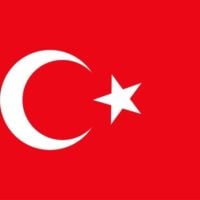Deadline: 16 June 2020
The European Union (EU) has announced a Call for Proposals to support civil society organisations as actors of governance in their own right by strengthening their capacity to participate effectively in policy formulation and in the monitoring of policy implementation processes in order to contribute to the achievement of the sustainable development goals (SDGs) and ensure no-one is left behind.
Objectives
The global objective of this call for proposals is to support civil society organisations as actors of governance in their own right by strengthening their capacity to participate effectively in policy formulation and in the monitoring of policy implementation processes in order to contribute to the achievement of the sustainable development goals (SDGs) and ensure no-one is left behind.
- The specific objectives of this call for proposals are:
- Lot 1-3: Inequalities initiative: To support civil society organisations in conducting analysis in order to develop public awareness and critical understanding of the causes, consequences and possible solutions to economic inequalities; and engage with public authorities to advocate public policies aiming at reducing income and wealth inequalities.
- Lot 4: Preventing and countering violent extremism (P/CVE): To contribute to prevent and counter violent extremism through a more strategic engagement with CSOs. This will be achieved through the establishment of a CSO hub that would serve as an EU partner in the P/CVE area. The objectives of the hub is 1) to provide a space where civil society active in the P/CVE area can interact in a more systematic and strategic manner, share best practices and exchange lessons learned, and 2) to serve as an EU’s operational instrument to support locally led initiatives in priority partner countries/regions.
The actions should focus on at least one of the following areas:
- Research;
- Education, training, workshops at local/regional level; Religious aspect;
- Youth and Women empowerment;
- Preventive communication;
- Foreign terrorist fighters, disengagement and reintegration;
- Partnership with private sector (on-line platforms/companies and social media) to design effective campaigns against violent extremism among others.
Priorities Issues
- Lot 1-3: Inequalities initiative
- Under lot 1-3, proposals must address the following priorities:
- Lot 1: Inequalities Initiative – Latin America and the Caribbean: At regional/global level: contribute to address illicit financial flows, tax evasion, and tax avoidance impact on income and wealth inequality. At country level:
- Lot 2: Inequalities initiative – Africa: At regional/global level: contribute to address illicit financial flows, tax evasion, and tax avoidance impact on income and wealth inequality. At country level:
- South Africa: contribute to address income and wealth inequality related to land rights, including land reform, and access to natural resources such as water for agriculture;
- Kenya: contribute to address income and wealth inequality related to tax policy (including tax incentives such as tax exemptions);
- Lot 3: Inequalities initiative – Asia-Pacific: At regional/global level: contribute to address illicit financial flows, tax evasion, and tax avoidance impact on income and wealth inequality. At country level:
- Lot 4: Preventing and countering violent extremism (P/CVE): Under lot 4, proposals must address all the following priorities:
- To build the capacity of the Framework Partnership Agreements’ signatories to contribute to addressing P/CVE through support into local, regional and global initiatives;
- To establish a CSO hub with a secretariat based in Brussels allowing for a timely and close collaboration with the Directorate-General for International Cooperation and Development (DG DEVCO) and when required also with other relevant Directorate-General from the European Commission (e.g. DG HOME) and EU services (e.g. European External Action Service);
- To contribute to deepening collaboration, cooperation, and networking among the civil society networks around the P/CVE agenda;
- To strengthen the capacity of CSOs in preventing and countering violent extremism through support into locally-led initiatives in the following areas among others:
- P/CVE and research;
- P/CVE education including critical thinking;
- P/CVE and religion;
- P/CVE women and youth;
- P/CVE and alternative messages/ media;
- Foreign Terrorist Fighters (FTF), disengagement and reintegration.
- To maximise the space for CSOs to contribute to P/CVE;
- To create a space for dialogue, through meetings, workshops, trainings among the actors involved such as private sector, local and regional platforms and networks, international organisations, experts on P/CVE and other civil society organisations.
Applicants must clearly specify under which lot they are submitting the application in their project title.
Funding Information
- The overall indicative amount made available under this call for proposals is EUR 14 000 000, specifically EUR 11 000 000 for lots 1 to 3 and EUR 3 000 000 for lot 4, all lots financed by the budget line 21 02 08 01.
- Indicative allocation of funds by lot distribution:
- Lot 1: Inequalities Initiative – Latin America and the Caribbean
- Total available: EUR 3 666 666
- Lot 2: Inequalities initiative – Africa
- Total available: EUR 3 666 666
- Lot 3: Inequalities initiative – Asia-Pacific
- Total available: EUR 3 666 666
- Lot 4: Preventing and countering violent extremism (P/CVE)
- Total available: EUR 3 000 000
- Lot 1: Inequalities Initiative – Latin America and the Caribbean
Eligibility Criteria
Lead applicant(s)
- Under all lots, in order to be eligible for a grant, the lead applicant must:
- be a legal person and
- be non-profit-making and
- be representative of a regional and/or global umbrella organisation of CSOs signatory of a Framework Partnership Agreement (FPA) with the European Commission with the aim to implement the Strategic Plan
- be directly responsible for the preparation and management of the action with the co-applicant(s) and affiliated entity(ies), not acting as an intermediary
- Potential applicants may not participate in calls for proposals or be awarded grants.
Co-applicant(s)
- The lead applicant must act with at least one co-applicant.
- In order to be eligible for a grant, the co-applicant(s) must:
- be a legal person and
- be non-profit-making and
- be a civil society organisation, and
- be established in:
- For Lot 1: Inequalities Initiative – Latin America and the Caribbean
- Bolivia, Colombia, Ecuador, Guyana, Paraguay, Peru, Suriname, Venezuela, Belize, Costa Rica, El Salvador, Guatemala, Honduras, Mexico, Nicaragua, Panama, Cayman Islands, Virgin Islands and EU member states.
- For Lot 2: Inequalities initiative – Africa
- Algeria, Angola, Benin, Botswana, Burkina Faso, Burundi, Cameroon, Cape Verde, Central African Republic, Chad, Comoros, Congo Brazzaville, Democratic Republic of Congo, Djibouti, Egypt, Equatorial Guinea, Eritrea, Eswatini, Ethiopia, Gabon, Gambia, Ghana, Guinea Republic, Guinea Bissau, Ivory Coast, Kenya, Lesotho, Liberia, Madagascar, Malawi, Mali, Mauritania, Mauritius, Morocco, Mozambique, Namibia, Niger, Nigeria, Rwanda, Sao Tome and Principe, Senegal, Sierra Leone, Somalia, South Africa, South Sudan, Sudan, Tanzania, Togo, Tunisia, Uganda, Zambia, Zimbabwe and EU member states.
- For Lot 3: Inequalities initiative – Asia-Pacific
- Afghanistan, Bangladesh, Bhutan, Fiji, Cambodia, India, Indonesia, Kazakhstan, Kyrgyzstan, Malaysia, Mongolia, Myanmar, Nepal, Pakistan, Philippines, Sri Lanka, Tajikistan, Thailand, Timor-Leste, Turkmenistan, Vietnam and EU member states.
- For Lot 4: Preventing and countering violent extremism (P/CVE)
- The EU partner country and EU Member States.
- Please note that developing countries, which are members of the G20 group (Argentina, Brazil, China, India, Indonesia, Mexico, South Africa, Turkey) can only participate in procedures, where the country itself is a beneficiary of the action.
- For Lot 1: Inequalities Initiative – Latin America and the Caribbean
Affiliated entity(ies)
- The lead applicant and its co-applicant(s) may act with affiliated entity(ies).
- Only the following entities may be considered as affiliated entities to the lead applicant and/or to co-applicant(s):
- Only entities having a structural link with the applicants (i.e. the lead applicant or a co-applicant), in particular a legal or capital link.
- This structural link encompasses mainly two notions:
- Control, as defined in Directive 2013/34/EU on the annual financial statements, consolidated financial statements and related reports of certain types of undertakings:
- Entities affiliated to an applicant may hence be:
- Entities directly or indirectly controlled by the applicant (daughter companies or first-tier subsidiaries). They may also be entities controlled by an entity controlled by the applicant (granddaughter companies or second-tier subsidiaries) and the same applies to further tiers of control;
- Entities directly or indirectly controlling the applicant (parent companies). Likewise, they may be entities controlling an entity controlling the applicant;
- Entities under the same direct or indirect control as the applicant (sister companies).
- Entities affiliated to an applicant may hence be:
- Membership, i.e. the applicant is legally defined as a e.g. network, federation, association in which the proposed affiliated entities also participate or the applicant participates in the same entity (e.g. network, federation, association,…) as the proposed affiliated entities.
- Control, as defined in Directive 2013/34/EU on the annual financial statements, consolidated financial statements and related reports of certain types of undertakings:
For more information, visit https://bit.ly/2x4cVLG and download the guidelines.









































